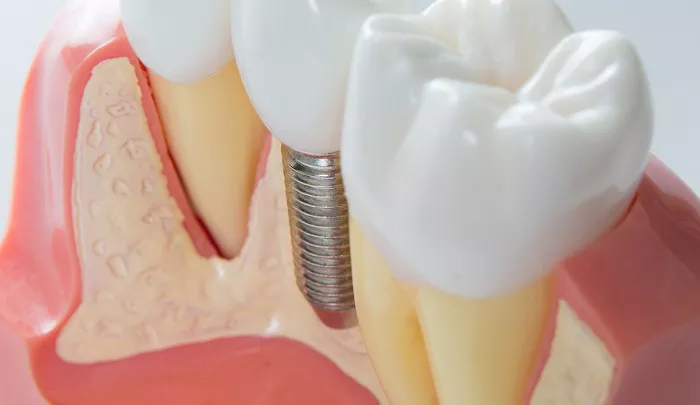Dental implants have become a gold standard for replacing missing teeth, offering a durable and natural-looking solution. However, many patients considering this treatment ask: How safe are dental implants? In this article, we’ll explore the safety of dental implants, including their success rates, potential risks, and factors that contribute to their long-term reliability.
What Are Dental Implants?
Dental implants are artificial tooth roots made of biocompatible materials, typically titanium or zirconia. They are surgically placed into the jawbone to support a crown, bridge, or denture. Implants are designed to mimic the function and appearance of natural teeth, providing a permanent solution for tooth loss.
Why Are Dental Implants Considered Safe?
Dental implants are widely regarded as a safe and effective treatment for tooth replacement. Here’s why:
Biocompatibility
The materials used in dental implants, such as titanium and zirconia, are biocompatible. This means they are well-tolerated by the body and unlikely to cause allergic reactions or adverse tissue responses.
High Success Rates
Dental implants have an impressive success rate of 95% to 98% over 10 years, making them one of the most reliable dental procedures available.
Long-Term Durability
With proper care, dental implants can last a lifetime. They are resistant to decay and do not require special maintenance beyond regular oral hygiene.
Proven Track Record
Dental implants have been used for decades, and extensive research supports their safety and effectiveness. Millions of patients worldwide have successfully received implants.
Factors That Contribute to the Safety of Dental Implants
Several factors ensure the safety and success of dental implants:
Proper Patient Selection
Not everyone is a candidate for dental implants. A thorough evaluation by a dentist or oral surgeon is essential to determine if you have sufficient bone density, healthy gums, and overall good health to support an implant.
Skilled Surgical Placement
The expertise of the dental professional plays a critical role in the safety of the procedure. Experienced implantologists follow strict protocols to minimize risks and ensure proper placement.
High-Quality Materials
Dental implants are made from medical-grade materials that meet stringent safety standards. Titanium and zirconia are both biocompatible and durable, reducing the risk of complications.
Comprehensive Aftercare
Proper post-operative care, including good oral hygiene and regular dental check-ups, is essential for the long-term success of dental implants.
Potential Risks and Complications of Dental Implants
While dental implants are generally safe, like any surgical procedure, they carry some risks. These include:
Infection
Infection at the implant site is a potential risk, though it is rare when proper sterilization and aftercare protocols are followed.
Implant Failure
In some cases, the implant may fail to integrate with the jawbone (a process called osseointegration). This can occur due to poor bone quality, smoking, or systemic health issues.
Nerve Damage
Improper placement of the implant can damage nerves, leading to numbness, tingling, or pain in the gums, lips, or chin.This is rare when the procedure is performed by an experienced professional.
Sinus Issues
For implants placed in the upper jaw, there is a risk of sinus problems if the implant protrudes into the sinus cavity. This can be avoided with proper planning and imaging.
Peri-Implantitis
This is a condition similar to gum disease, where inflammation and infection occur around the implant. It can lead to bone loss and implant failure if not treated promptly.
Comparing Dental Implants to Other Tooth Replacement Options
To better understand the safety of dental implants, let’s compare them to other tooth replacement options:
Dental Bridges
Safety: Bridges are generally safe but require the alteration of adjacent healthy teeth, which can weaken them over time.
Longevity: Bridges typically last 5 to 15 years, compared to implants, which can last a lifetime.
Dentures
Safety: Dentures are non-invasive and safe but can cause bone loss over time due to lack of stimulation to the jawbone.
Comfort: Dentures may slip or cause discomfort, while implants provide a stable and secure fit.
Implant-Supported Dentures
Safety: Combining implants with dentures improves stability and reduces bone loss, making them a safer and more durable option than traditional dentures.
Conclusion
Dental implants are a safe, reliable, and long-lasting solution for replacing missing teeth. Their high success rates, biocompatibility, and durability make them an excellent choice for most patients. While there are some risks associated with the procedure, these can be minimized by choosing an experienced professional, following pre- and post-operative care instructions, and maintaining good oral hygiene.If you’re considering dental implants, consult with a qualified dentist or oral surgeon to determine if they are the right option for you. With proper care and maintenance, dental implants can provide a lifetime of smiles and improved oral health.

